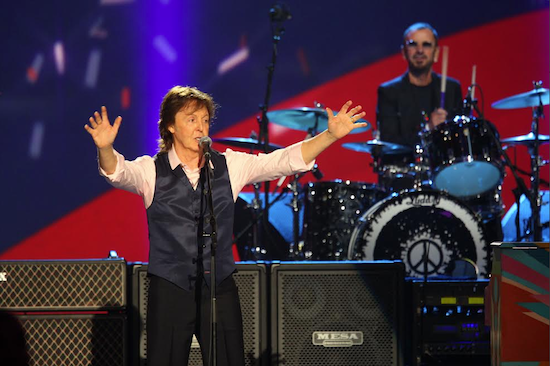OPINION: Looking back at the Beatles and what made them so great

The big event of the week for many people was Sunday night’s CBS-TV special, starring Ringo Starr, Paul McCartney and a host of other musicians, which celebrated the 50th anniversary of the Beatles’ first appearance on “The Ed Sullivan Show.” Pundits looking back at the original 1964 event hailed it as the beginning of a revolution..
But was it? The Beatles didn’t start the ‘60s “hippie movement,” with its tradition-breaking ideas about sex, drugs, politics and clothing. That came a few years later. If anything, the Beatles changed with the times—they didn’t start those changes. That trend began with a relatively small number of folk and jazz musicians, beat poets and avant-garde artists in the East Village and San Francisco, then spread from there. The early Beatles wore suits and ties, and the only thing “revolutionary” about them was their hairstyles.
Nor were they musical revolutionaries. In their early style, they followed in the footsteps of Chuck Berry, Buddy Holly, Little Richard and the Everly Brothers, with a little doo-wop thrown in (“Tell Me Why,” “This Boy”). Again, their truly revolutionary music, like “Sergeant Pepper,” was several years in the future.